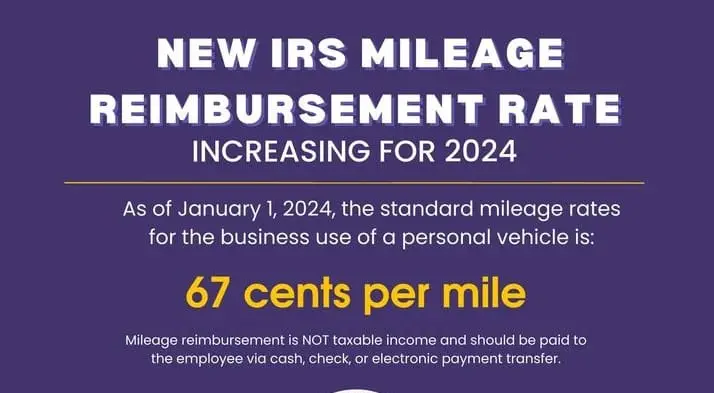Navigating the Road:
Driving to work is an essential daily routine for many individuals and businesses. Whether you’re a salesperson traveling to meet clients, a delivery driver making rounds, or an independent contractor using your vehicle, understanding mileage reimbursement rates is crucial. This informative guide by Syed Professional Services explores the concept of mileage reimbursement, the IRS-approved rates for 2024 and beyond, and how these rates impact both employees and employers.
Understanding Mileage Reimbursement
Mileage reimbursement is a method for compensating employees who use their vehicles for business purposes. It’s an alternative to providing a company car. It allows employees to deduct the wear and tear on their vehicles from their taxes. There are two primary methods for determining mileage reimbursement.:
- Actual Cost Method: This method reimburses employees for the exact documented expenses, such as gas, maintenance, and repairs. However, tracking these expenses can be time-consuming for both employees and employers.
- Standard Mileage Rate Method: This simplified method uses a pre-determined rate set by the IRS to reimburse employees for the business use of their vehicles—this rate factors as, oil, depreciation, insurance, and other typical operating expenses.
The IRS Standard Mileage Rate in 2024
The IRS periodically adjusts the standard mileage rate to account for changes in fuel costs and other operating expenses. For tax year 2024, the standard mileage rate for business use of a car (including vans, pickups, and panel trucks) is 67 cents per mile. It represents an increase of 1.5 cents per mile compared to the 2023 rate.
The Impact of Mileage Reimbursement Rates
The standard mileage rate has significant implications for both employees and employers:
- For Employees:
- Tax Benefits: Employees reimbursed at the standard mileage rate can deduct this amount from their taxable income, potentially reducing their overall tax burden.
- Simplified Expense Tracking: Using the standard mileage rate eliminates the need to track and document individual vehicle expenses, saving time and effort.
- For Employers:
- Cost Control: The standard mileage rate provides a predictable and manageable expense for reimbursing employee vehicle use.
- Administrative Efficiency: Employers don’t need to track and process individual employee gas receipts or maintenance records.
- Tax Deduction: Employers can deduct the mileage reimbursements paid to employees as a business expense.
Mileage Reimbursement Rates Beyond 2024
The IRS standard mileage rate typically changes annually. Predicting the precise rate for 2025 and beyond is challenging, but it will likely change in response to fuel costs and inflation.
Syed Professional Services: Your Guide to Mileage Reimbursement
Optimizing mileage reimbursement strategies requires understanding the IRS regulations and best practices. Syed Professional Services can empower you with:
- Determining the Right Method: We can help you decide whether the actual cost or standard mileage rate method suits your situation.
- Mileage Tracking Tools: We can recommend user-friendly tools for employees to track their business miles accurately.
- Recordkeeping and Documentation: Our team can advise you on maintaining proper records to comply with IRS requirements, whether using the actual cost method or standard mileage rate.
- Tax Implications Analysis: We can help you understand the tax implications of mileage reimbursement for both employees and employers.
- Staying Updated on Rate Changes: Syed Professional Services will inform you about future adjustments to the standard mileage rate.
Navigating the Road with Confidence
Mileage reimbursement can be a win-win situation for both employees and employers. By understanding the IRS standard mileage rate and its implications, you can ensure fair compensation and streamlined expense management. Let Syed Professional Services guide you through the intricacies of mileage reimbursement and ensure you’re on the right track.




